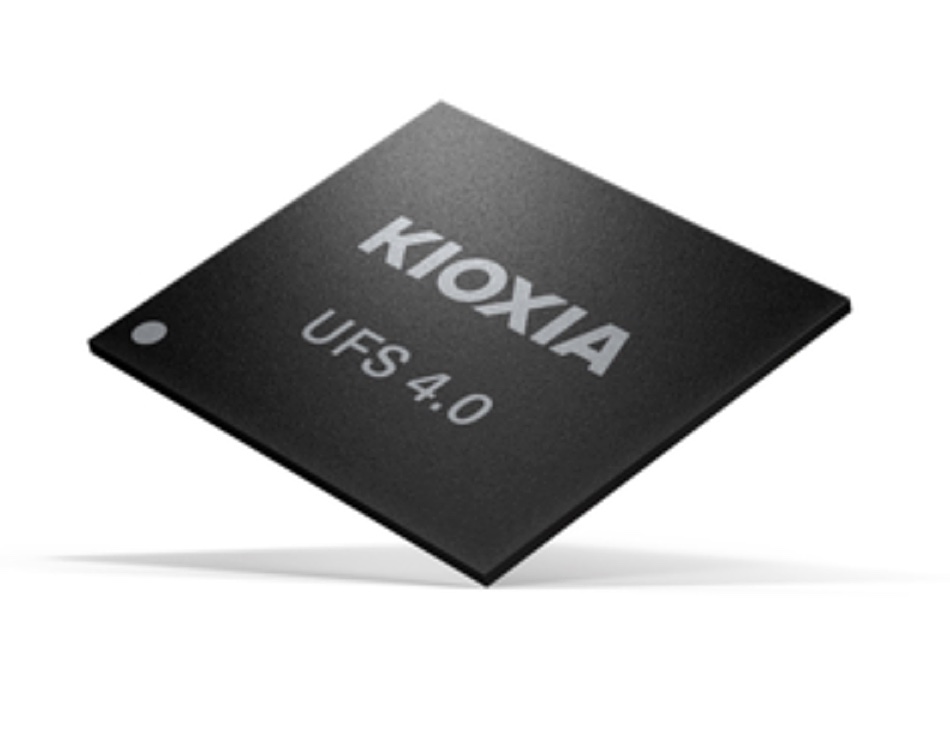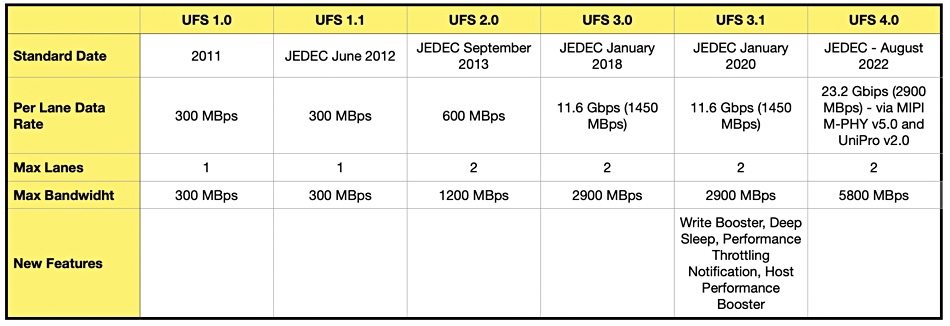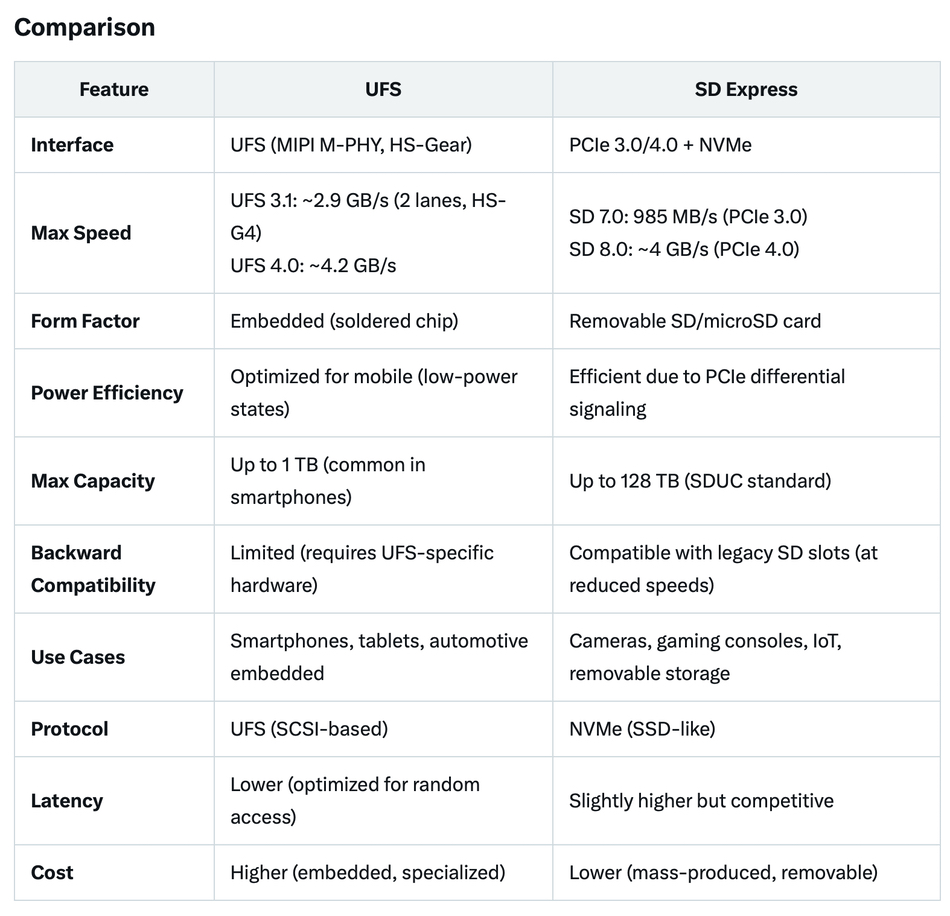UFS – Universal Flash Storage is a drive specification for smart phones, digital cameras and similar devices. It’s the size of a (very) large fingernail and replaces earlier eMMC and SD card specifications. For example, a Micron UFS 4.0 card is 11 x 12mm in size with an extended one coming 9 x 13mm in size. UFS is SCSI-based, supports SCSI tagged command queuing and the standard is looked after by JEDEC. The JEDEC UFS standard refers to both embedded memory storage and removable memory cards.

Here is a table showing how the standard has developed;

Micron is building an extended UFS 4.0 card with more speed and SK hynix is developing a UFS 5.0 card.
SD Express and UFS
UFS and SD Express are advanced storage technologies designed for high-performance applications, but they differ in form factor, use cases, and technical specifications.
- UFS: A high-speed flash storage standard developed by JEDEC, primarily used in smartphones, tablets, and embedded systems. It’s designed for fast, low-power, and reliable data storage with a focus on mobile and embedded applications.
- SD Express: An SD card standard by the SD Association, leveraging PCIe and NVMe protocols to deliver SSD-like performance in a removable, compact form factor. It targets devices like cameras, gaming consoles, and IoT systems.



